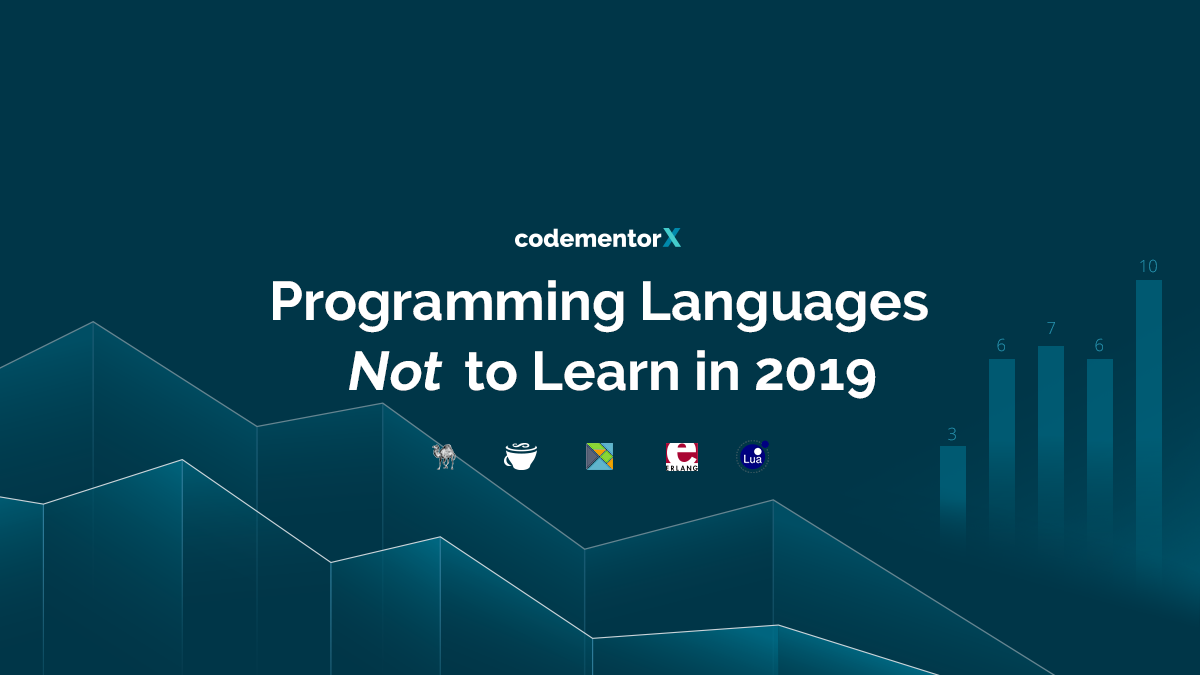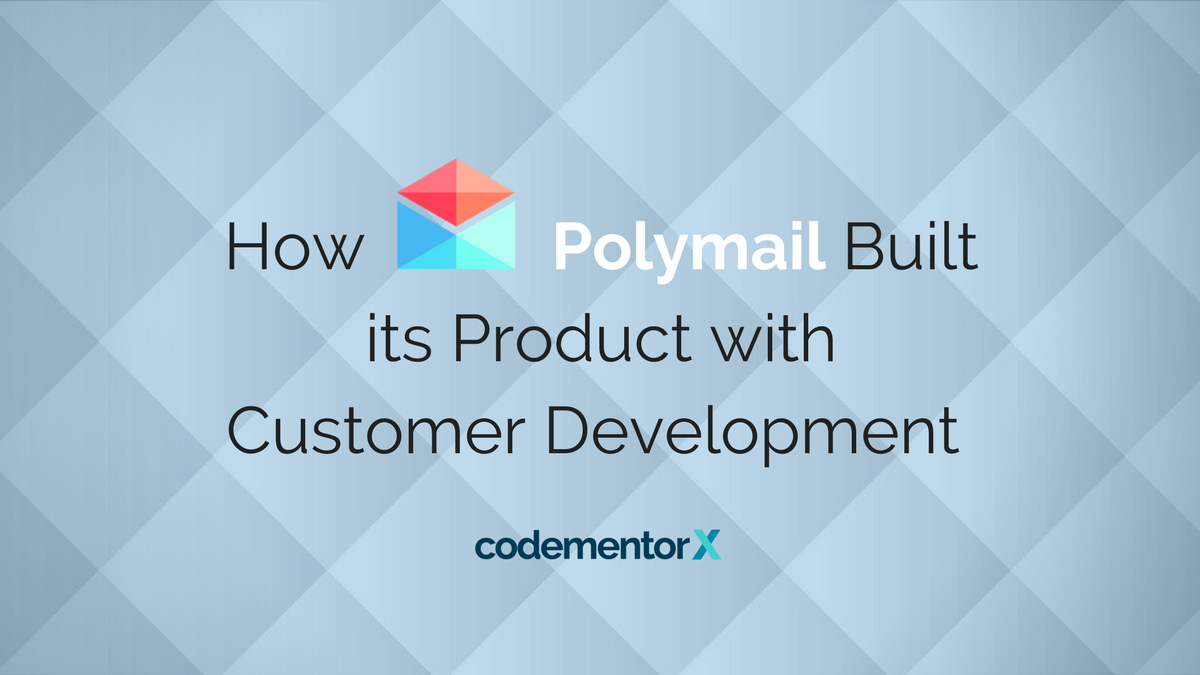While blockchain technology has been around since 2008, interest in blockchain hit an all-time high in November 2017. In the same time period, demand for blockchain developers skyrocketed on the Codementor platform — so much so that there wasn’t quite enough supply to meet it.
This made the Codementor team wonder: why isn’t there an abundant supply of software engineers well-versed in blockchain development? Was it because developers thought blockchain was overrated? Was it one ICO scam too many? Were developers simply uninterested in the technology?
As such, to see how developers felt about the future of technology itself, as well as their interest in it, Codementor surveyed its developer community — junior developers, senior developers, mentors, and mentees — about their thoughts on the state of blockchain development.
We received over 2,000 responses and found that, despite the sometimes heated public discussion about blockchain and cryptocurrency, the subject is less controversial than one might think in developer communities.
Overall, we found that there is a link between the degree of positivity software engineers felt towards blockchain and their familiarity with it, a relationship between a developer’s age and their opinion about blockchain, and significant interest in learning blockchain in developer communities.
Familiarity vs. Opinion About Blockchain
Overall, there is an overwhelmingly positive view of blockchain technology. Of all respondents, 92% had a positive or very positive view of it. Seven percent of respondents had a negative view and and one percent had a very negative view of the technology.
Of people who were unfamiliar with blockchain, 66% of respondents had a positive impression of it, whereas for people who had some understanding of it, 65% had a positive impression. Out of those who understood blockchain fairly well, 52% of respondents had a positive impression. Finally, for people who considered themselves experts among their peers, 39% had a positive impression.
On the other hand, among those who identified as experts among their peers, as understanding level increased, there is an increase in very positive opinions about the technology. In particular, there is a definite trend toward familiarity and opinion on the expert level, with the most number of experts choosing very positive for view on blockchain compared to positive.
While developers on the first three levels of understanding (unfamiliar, some, and fairly well) held very favorable opinions of blockchain, only in the expert category did developers cluster overwhelmingly in the very positive category, with 54% of developers who considered themselves experts holding a very positive opinion compared to a positive one.
Thus, although there is an overall positive opinion regarding the technology among all levels of understanding of blockchain development, only the category of those who considered themselves experts experienced a linear increase in positivity levels regarding blockchain.
Age vs. Opinion on Blockchain
Next to familiarity with blockchain, another factor in developer opinion is age. We found age a major factor in terms of whether or not a developer found it overrated. The youngest age bracket (18-24) were the most enthusiastic about blockchain, with 71% finding it not overrated compared to the oldest age bracket (over 54), where 56% found it not overrated.
The age brackets in the middle (25-34, 35-44, and 45-54) were roughly the same in terms of their views on whether or not blockchain is overrated, averaging about 62% in terms of support for blockchain, with about 1.75 times the number of developers supporting blockchain rather than against it.
Overall, there is a plateau of support among the youngest and oldest age groups, with 18-24 having the highest levels of support (Vitalik Buterin, creator of Ethereum, is 24 years old), the three groups in the middle having roughly equal levels of support, and those in the oldest age group with the least support for blockchain, even though they still had a positive view of it.
Is It Worth Learning Blockchain Programming?
Should I Learn Blockchain in the Next Three Months?
One major reason we wanted to conduct this survey was to gauge community interest in learning blockchain given the shortage of blockchain developers when the excitement surrounding cryptocurrency was at its peak.
Looking at our data from that time period, we saw a surge in demand on the Codementor platform for blockchain mentors that eventually tapered off. We wanted to know the reason behind this drop and whether or not developers were interested in learning the technology.
We posited that if blockchain development was something the developer community was interested in pursuing, we could provide more resources for those who wanted to learn the ins and outs of the technology.
After the results came back, we found that roughly 89.4% of respondents answered positively and 10.6% of respondents answered negatively when asked whether they were interested in learning blockchain in the next three months.
This means that while almost 11% of participants did not want to learn blockchain in the next three months at all, the vast majority are still interested in some capacity. This bodes well for the future of blockchain if almost half of the survey respondents are interested in learning with almost another half open to learning it.
When Did You Start Learning Blockchain Development?
While almost 90% of participants who haven’t learned blockchain yet are interested in learning blockchain in the next three months, a good chunk of developers have already started learning. Although many developers are new to learning the technology, almost 20% of those who have experience in blockchain development began learning before 2017.
Roughly 80.5% of developers who have started learning it have less than a year of experience. Although there are quite a few people who are relatively more experienced (possibly the 8.2% who answered that they were experts among their peers), the majority of people don’t have much experience.
On a positive note, this means two things: one, although there is definite interest in blockchain, particularly in the past year, there is room to grow in terms of cultivating experienced developers and two, if developers, particularly junior and young developers, continue being enthusiastic and invested in learning about blockchain, the technology could come a long way in the near future once they begin applying what they’ve learned to further its development.
Why I Am Learning Blockchain?
While one might expect professional development to be a primary drive for learning blockchain, due to the hype surrounding it, 51.4% of developers responded that they decided to learn it out of personal interest, either because they liked the technology or believed in the potential of blockchain development and decentralization.
In contrast, 43.1% of respondents pursued blockchain learning for future professional development, including prospects of a better career or better pay. Finally, only 5.4% of respondents are learning the technology because of professional or educational requirements.
Why I Am NOT Learning Blockchain?
Of the 10.6% of respondents who weren’t interested in blockchain, there were a myriad list of reasons why they didn’t want to learn it at all. The biggest reason, cited by 38.4% of respondents, was that they did not want to invest in learning the technology because it’s too early for them to tell if blockchain will be useful.
We’ll go into the reasons that 36.8% of respondents, who chose “Other” in a bit, but the third major reason 20.8% of respondents did not want to learn blockchain was because they believed that it’s a fad.
Finally, 14.4% of those who weren’t interested felt that there are too many ICO scams that they didn’t want to be associated with if they learned it, and 8% of respondents did not want to learn the technology because they did not think blockchain would have practical use cases in the future.
Among the 36.8% of respondents who chose “Other” as the reason they didn’t want to learn the technology, there were five popular answers: lack of time, lack of interest, other priorities, other opportunities that complemented their skill sets better, and gripes about the nature of blockchain itself.
In essence, those who aren’t interested in learning blockchain are unsure about its future prospects — whether or not it’s here to stay or just a fad — or are busy with other, more interesting opportunities in their personal or professional lives.
Blockchain: Hype or Not Hype
If you only looked at the reasons folks weren’t interested in learning blockchain — e.g., it’s a fad, there are too many scams, it may not be useful, there might not be practical use cases — you might think that the developer community was skeptical and bearish about the technology as a whole.
However, when surveyed about whether or not they felt blockchain technology was overrated, a bit more than a third of respondents answered in the affirmative while a bit less than two thirds of respondents replied negatively. In other words, 64.2% of developers surveyed felt that blockchain was not overrated while 35.8% thought that it was, indeed, overrated.
This point is interesting because while it seems that the majority of developers feel that the technology is not overrated, in the write-in section, there are a number of people who wrote “hype” or “overrated” as the one word to describe blockchain.
Of those who wrote in a word to describe it, the word “overrated” was the 24th most used word and “hype” the 16th most popular. As previously mentioned, 20.8% of respondents who answered that they were not interested in learning blockchain wrote that that they felt that blockchain was a fad that would go away.
That being said, however, words like “revolutionary” and “future” were the most popular words, which shows that while some developers feel that blockchain is a hype, there are many more who do believe in the technology and are enthusiastic about its potential.
Development Experience vs. Likelihood of Owning Cryptocurrency
Finally, in terms of development experience and feelings toward cryptocurrency, developers on the more senior end of the years of experience scale are more likely to own crypto than more junior developers.
Developers with 5-7 years of development experience are the most likely to own cryptocurrency, edging out developers with over 8 years of experience. Developers with 5-7 years of development experience are 1.65 times more likely to own crypto than developers with less than one year of experience.
In comparison, developers with over 8 years of experience are 1.09 times less likely to own crypto than developers with 5-7 years of experience. This may be because while more senior developers have more discretionary income than more junior developers, they might also be more conservative in terms of investing in cryptocurrency (we’ve established earlier that younger developers are more bullish about blockchain).
The State of Blockchain Development in 2018
While the future of cryptocurrency and blockchain are to be determined, the developer community is optimistic about blockchain technology. Developers have an overwhelmingly positive view of blockchain, developers who consider themselves experts in blockchain technology have very positive views of blockchain technology (more so than their peers), and young developers in particular are least likely to find the technology overrated.
Both junior and senior developers, though not those at either extreme, are investing in cryptocurrency, and 89.4% of developers are interested or open to learning blockchain technology in the near future. While 80.5% of developers are new to learning blockchain, 51.4% of developers are learning out of personal interest, which means that a majority of developers are in it out of passion or curiosity, which bodes well for blockchain’s future.
In short, in 2018, there are a healthy majority of developers who don’t think blockchain technology is overrated, is interested in learning blockchain development in the next three months, and include a host of junior developers bullish about blockchain technology and development.
Let us know what you think about the state of blockchain programming in the comments!
Enjoy reading data-driven posts? If so, here are some of our recommendations!
Best Cities to Launch Your Startup Outside of the United States
The Happiest Cities in the US for Developers
The Most Common Words in Engineering Job Descriptions



